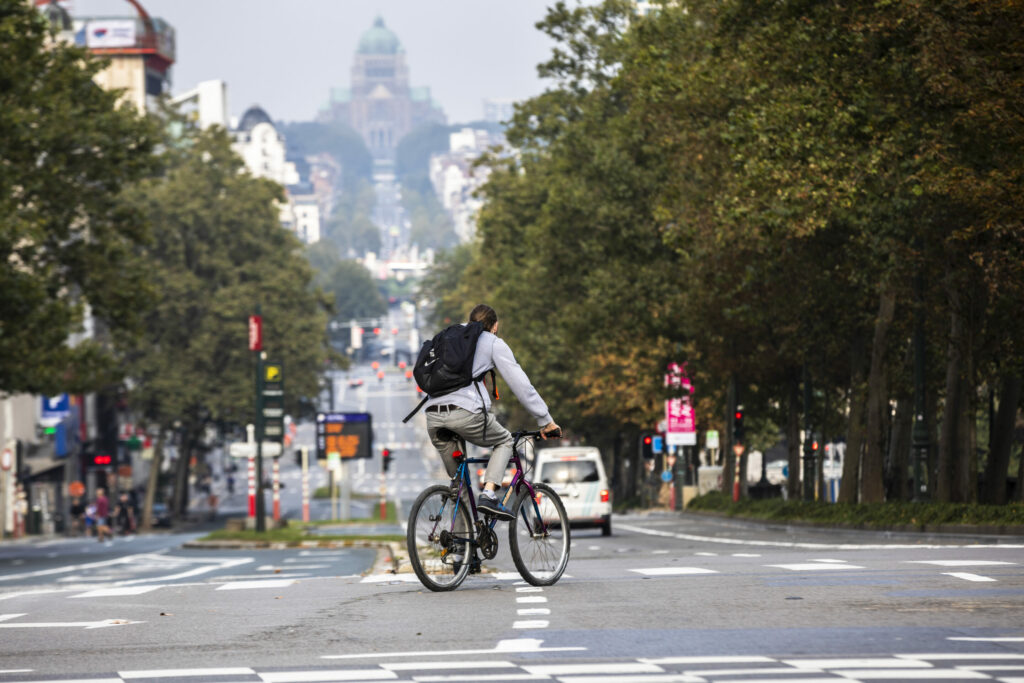Good Move, the construction of Metro 3 or scattered e-scooters – mobility in Brussels is a topic heavily on many people's minds. With the elections rapidly approaching, the mobility policies of political parties have been assessed.
Heroes for Zero, a non-profit organisation that aims to improve road safety across Brussels, submitted a survey of 48 statements to the parties running in the Capital Region. Respondents gave each statement a score from 0 (completely disagree) to 10 (completely agree). They could also provide comments on the questions.
The 48 statements fed into 11 wider themes about road safety – from reducing heavy traffic in the city to investing in school streets or paying specific attention to the socio-economic reality of certain neighbourhoods.
The Brussels Times had a look at the data.
Infrastructure development
One of the biggest themes was support for the (re)development of specific infrastructure to improve road safety. Particularly, for separated bicycle lanes, more crosswalks, extended pedestrian lanes, and residential streets with more traffic filters – measures that have all been implemented as part of Brussels' controversial Good Move mobility plan nearly two years ago.
The STOP principle to achieve sustainable mobility – which ranks modes of transport in order of preference: pedestrians first, cyclists second, public transport third and individual cars last – was supported by all parties (scoring its importance between 6 and 10), except for Flemish far-right Vlaams Belang (which gave a score of 2).
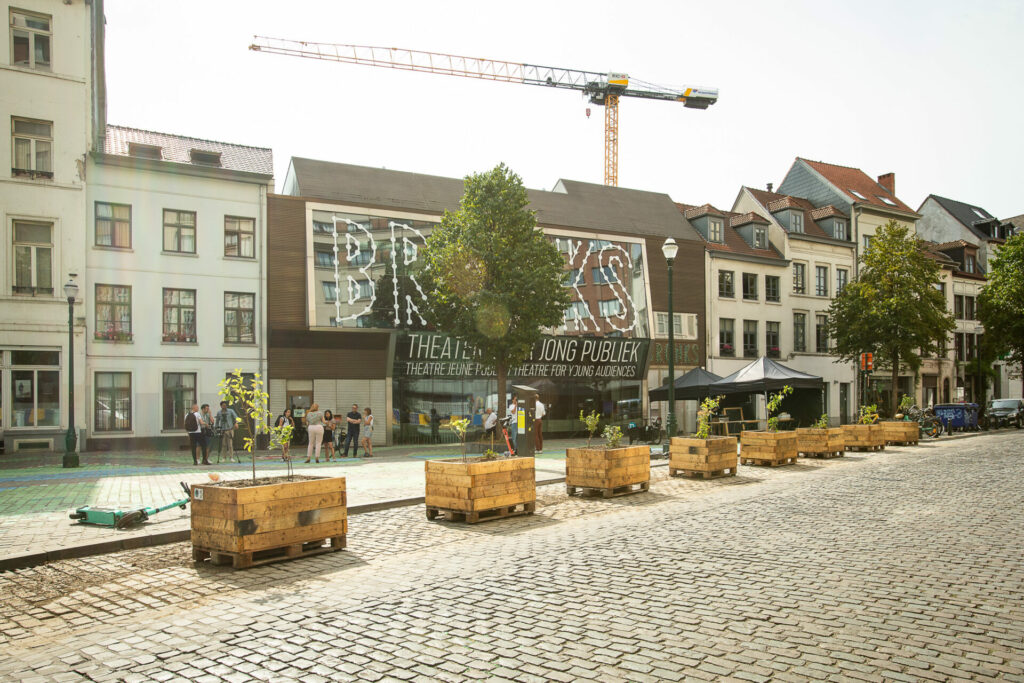
Credit: Belga / James Arthur Gekiere
Dutch-speaking socialists Vooruit.brussels, environmentalists Groen and Ecolo and the Flemish Christian-Democrats CD&V are also in favour of eliminating parking spaces in order to better respect the STOP principle.
"Importantly, all political parties said they are in favour of considerably increasing the number of separated cycle paths," the Heroes for Zero collective pointed out.
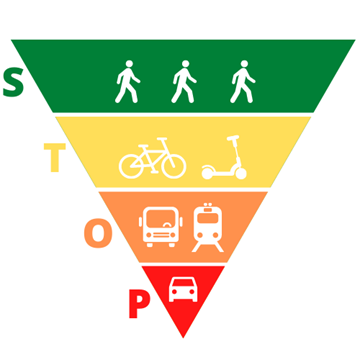
The STOP mobility principle (acronym in Dutch).
Speeding prevention, stronger 30 km/h zones
Also prominent were measures to lower driving speeds – such as the generalised 30 km/h speed zone implemented four years ago. Parties were asked their views on stricter speed checks, reducing the margin of tolerance from 47km/h to 37km/h, a points-based driver's license, more effective sanctions and road safety as a priority for the police and the judiciary.
"Most parties support the prevention of speeding and strengthening the City 30, with the exception of Vlaams Belang and the Francophone liberal MR which both scored below 35 out of 70 for this theme," the non-profit pointed out. The two parties also opposed reducing the tolerance margin for speeding.
Vooruit.brussels, Groen, Flemish rightwing N-VA, Ecolo and CD&V are the only parties to fully support the introduction of a points-based licence. Vooruit.brussels, the Francophone socialists PS, Groen and CD&V strongly favour a lower margin of tolerance and all gave the proposal a 10/10 in support.
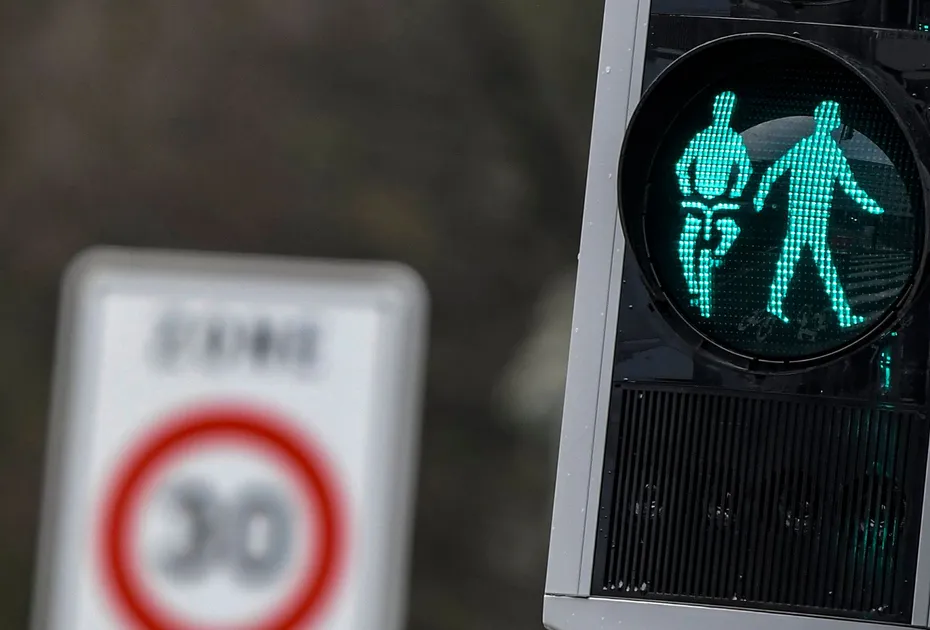
Credit: Belga
Fighting aggression in traffic
While all parties agree on the importance of the fight against road rage, they diverge on how this should be dealt with – whether through stricter controls, an online system for complaints or victim helplines.
"The Belgian radical-left PVDA-PTB and the N-VA expressed confidence in the systems currently in place, but N-VA also pleaded for more resources for the police and justice."
The Brussels centre-right DéFi party added that "zero tolerance must be applied to road violence and that the cars of offenders and perpetrators of urban rodeos should be seized."
Reducing traffic pressure
One of the survey's key issues was how to reduce motorised traffic in the Capital Region. This includes methods to cut transit traffic, having more police on bikes, municipal mobility commissions, improving public transport (which includes finishing the construction of Metro line 3), implementing traffic plans faster, introducing tolls or mileage taxes or creating a mobility budget to replace the company car.
"There are significant differences in views from the parties," Heroes for Zero pointed out. For example, only Ecolo and Vooruit.brussels fully back (10/10 score) car free streets – which discourage transit traffic.
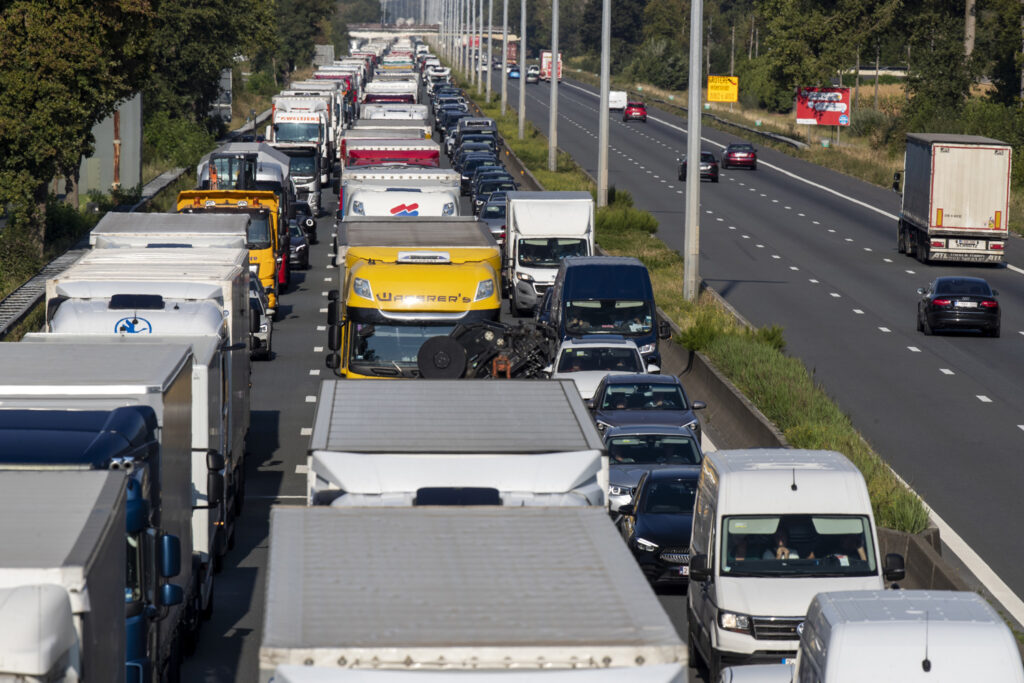
Credit: Belga
"The Francophone Christian-Democrats Les Engagés and the MR also support the reduction of motorised traffic, but have different views on how that reduction should be implemented," said Heroes for Zero.
Notably, the Flemish liberal Open Vld, DéFi, Groen, Ecolo, and Vooruit.brussels all support 'Smartmove,' the kilometre tax – meaning that people who use their car more will pay more – aimed at reducing car congestion in Brussels. "DéFi even goes so far as to mention that they support a kilometre tax on the entire territory of Belgium. Conversely, the PS mentioned that the party is opposed to Smartmove."
Heavy vehicles in the city
The statements in this theme focused on enlarging parking spaces, dissuading SUVs in the city and encouraging alternative mode of transport (such as e-scooters), implementing technologies to combat the dangers of blind spots, using urban logistics, and looking into road safety versus commercial speed of public transport.
Vooruit.brussel, Groen, Ecolo and CD&V support the idea of stricter standards for heavy vehicles – such as mandatory equipping them with blind spot technology – and restricting the access of large vans to cities, while encouraging urban logistics with bicycles or light vehicles.
"Vlaams Belang, N-VA, PS and MR, however, show reluctance towards certain measures, such as dissuading SUVs through parking charges in Brussels."
Related News
- Barrière de Saint-Gilles one step closer to green transformation
- Belgian road users urged to obey traffic lights in new campaign
- 'Good Move needs to be completely overhauled,' says Koekelberg Mayor
Other themes, such as 'Taking the feeling of insecurity of active users into account' by geographically visualising this feeling, 'investing in public transport,' creating a 'serious and fatal collision database,' making school surroundings safer through pedestrian zones, and focusing on the gender aspect of road safety were also part of the survey.
"While they are less directly linked to road safety, they are still important in the long term to encourage active modes of transport in Brussels," emphasised Heroes for Zero.

